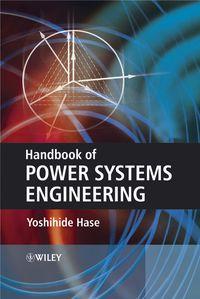Handbook of Power System Engineering

Yoshihide Hase
Жанр:электроника
Язык книги:Английский
Тип:PDF книга
Издательство:John Wiley & Sons Limited
Дата публикации:08.12.2022
Просмотры:52
Отзывы:Пока нет Добавить отзыв
О книге: Maintaining the reliable and efficient generation, transmission and distribution of electrical power is of the utmost importance in a world where electricity is the inevitable means of energy acquisition, transportation, and utilization, and the principle mode of communicating media. Our modern society is entirely dependent on electricity, so problems involving the continuous delivery of power can lead to the disruption and breakdown of vital economic and social infrastructures. This book brings together comprehensive technical information on power system engineering, covering the fundamental theory of power systems and their components, and the related analytical approaches. Key features: Presents detailed theoretical explanations of simple power systems as an accessible basis for understanding the larger, more complex power systems. Examines widely the theory, practices and implementation of several power sub-systems such as generating plants, over-head transmission lines and power cable lines, sub-stations, including over-voltage protection, insulation coordination as well as power systems control and protection. Discusses steady-state and transient phenomena from basic power-frequency range to lightning- and switching-surge ranges, including system faults, wave-form distortion and lower-order harmonic resonance. Explains the dynamics of generators and power systems through essential mathematical equations, with many numerical examples. Analyses the historical progression of power system engineering, in particular the descriptive methods of electrical circuits for power systems. Written by an author with a wealth of experience in the field, both in industry and academia, the Handbook of Power System Engineering provides a single reference work for practicing engineers, researchers and those working in industry that want to gain knowledge of all aspects of power systems. It is also valuable for advanced students taking courses or modules in power system engineering.